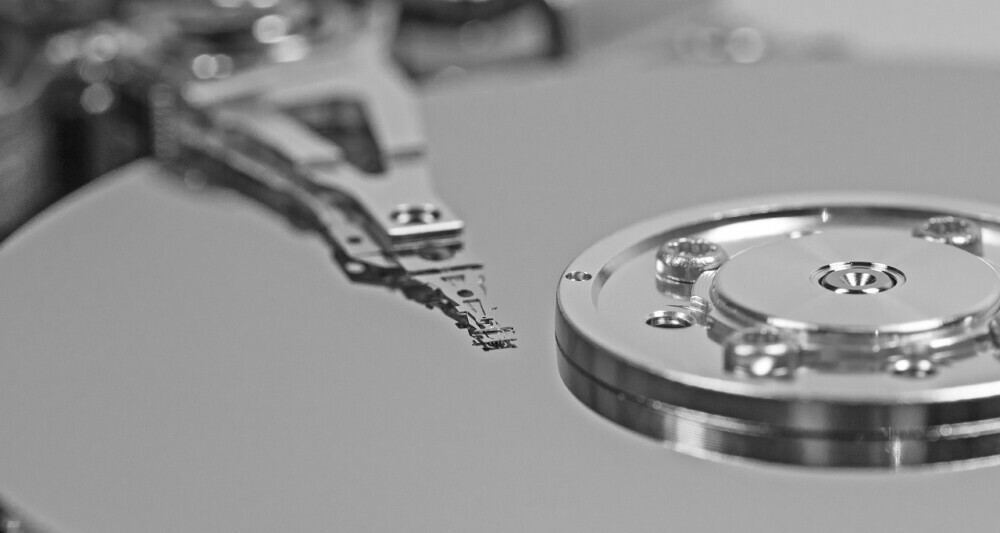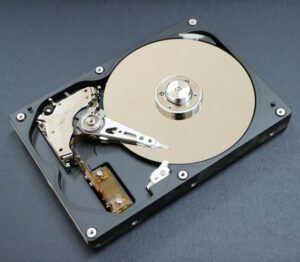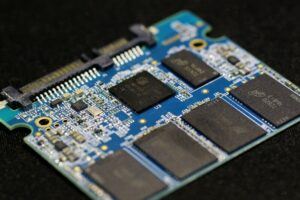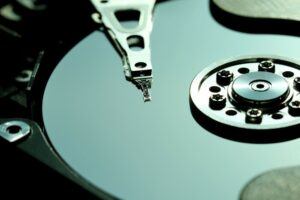 Storage technology is developing rapidly today and the traditional hard disk drive (HDD) is becoming outranked with the newer, faster, more efficient solid state drive (SSD) technologies. The choice between Hard Disk Drives and Solid State Drives in a computer has become an important consideration for users looking for the perfect balance of performance, reliability, and cost-effectiveness. In this article, we will explore the inner workings of both storage technologies, the superiority and advantages of SSDs specifically in laptops, and the potential shift in the storage landscape as HDDs have been predicted to become obsolete after 2028.
Storage technology is developing rapidly today and the traditional hard disk drive (HDD) is becoming outranked with the newer, faster, more efficient solid state drive (SSD) technologies. The choice between Hard Disk Drives and Solid State Drives in a computer has become an important consideration for users looking for the perfect balance of performance, reliability, and cost-effectiveness. In this article, we will explore the inner workings of both storage technologies, the superiority and advantages of SSDs specifically in laptops, and the potential shift in the storage landscape as HDDs have been predicted to become obsolete after 2028.
What is a hard disk drive and how does it work
 Hard Disk Drives have been around for the last 67 years, and have long been the workhorses of data storage, utilizing magnetic storage technology. Inside a Hard Disk Drive, one or more spinning disks, or platters, are coated with a magnetic material. A read/write head hovers just above the surface of these spinning platters, reading and writing data as they rotate. The data is stored in concentric circles known as tracks, and each track is further divided into sectors. The mechanical nature of Hard Disk Drives contributes to their characteristic whirring sound, a result of the spinning disks and the movement of the read/write head. While traditional, this mechanical structure can lead to slower read and write speeds compared to more modern storage solutions, and it is also susceptible to mechanical failure, which can lead to data loss.
Hard Disk Drives have been around for the last 67 years, and have long been the workhorses of data storage, utilizing magnetic storage technology. Inside a Hard Disk Drive, one or more spinning disks, or platters, are coated with a magnetic material. A read/write head hovers just above the surface of these spinning platters, reading and writing data as they rotate. The data is stored in concentric circles known as tracks, and each track is further divided into sectors. The mechanical nature of Hard Disk Drives contributes to their characteristic whirring sound, a result of the spinning disks and the movement of the read/write head. While traditional, this mechanical structure can lead to slower read and write speeds compared to more modern storage solutions, and it is also susceptible to mechanical failure, which can lead to data loss.
What is a solid state drive and how does it work
 Solid State Drives, on the other hand, represent a leap forward in storage technology, doing away with the moving parts that characterize HDDs. This newer storage technology utilizes NAND-based flash memory, a non-volatile type of storage that retains data even when the power is turned off. Instead of relying on spinning disks, SSDs store data in interconnected memory chips, allowing for faster access times and improved overall performance. Without the mechanical limitations of HDDs, SSDs excel in terms of speed, offering near-instantaneous data retrieval. This lack of moving parts not only enhances speed but also contributes to the durability and energy efficiency of SSDs.
Solid State Drives, on the other hand, represent a leap forward in storage technology, doing away with the moving parts that characterize HDDs. This newer storage technology utilizes NAND-based flash memory, a non-volatile type of storage that retains data even when the power is turned off. Instead of relying on spinning disks, SSDs store data in interconnected memory chips, allowing for faster access times and improved overall performance. Without the mechanical limitations of HDDs, SSDs excel in terms of speed, offering near-instantaneous data retrieval. This lack of moving parts not only enhances speed but also contributes to the durability and energy efficiency of SSDs.
Benefits of using a solid state drive in a laptop
 The advantages of Solid State Drives are particularly pronounced when integrated into laptops, where users demand a balance of performance and portability. The benefits include:
The advantages of Solid State Drives are particularly pronounced when integrated into laptops, where users demand a balance of performance and portability. The benefits include:
Speed and Responsiveness: SSDs significantly improve a laptop’s speed, reducing boot times and accelerating the launch of applications. This is especially beneficial for users who require quick access to data on the go.
Durability and Portability: With no moving parts, SSDs are inherently more durable than HDDs. This durability is especially crucial for laptops that may be subjected to bumps, drops, and constant movement.
Efficient Energy Usage: SSDs consume less power than HDDs, contributing to longer battery life for laptops. This energy efficiency is essential for users who rely on their laptops throughout the day without constant access to power sources.
Operating Noise: The absence of moving parts in SSDs translates to silent operation. In quiet environments, such as libraries or business meetings, the lack of noise from spinning disks is a significant advantage.
When it comes to laptops, I would not recommend buying a laptop these days that still has a hard disk drive – SSD is definitely the way to go!
The future for hard disk drives
 A significant development on the horizon is the predicted end of life for Hard Disk Drives in 2028. Earlier in this year, Shawn Rosemarin (vice president of research and development in the customer engineering unit at Pure Storage) stated that hard drive sales will come to an end after 2028, citing the cost of electricity as the main trigger for this development. As mentioned above, SSDs consume less power than HDDs and this is an important consideration, not only in laptops to extend battery life, but also in large data centres to reduce their electricity bill. There are, however, counter arguments in the industry that predict that HDD sales will still remain high in 2028.
A significant development on the horizon is the predicted end of life for Hard Disk Drives in 2028. Earlier in this year, Shawn Rosemarin (vice president of research and development in the customer engineering unit at Pure Storage) stated that hard drive sales will come to an end after 2028, citing the cost of electricity as the main trigger for this development. As mentioned above, SSDs consume less power than HDDs and this is an important consideration, not only in laptops to extend battery life, but also in large data centres to reduce their electricity bill. There are, however, counter arguments in the industry that predict that HDD sales will still remain high in 2028.
However, it can be expected that, as technology advances and SSDs become more affordable and widely adopted, the demand for traditional HDDs may well decline. Manufacturers are likely to shift their focus and resources towards the production and improvement of SSDs, marking a turning point in the storage industry. This shift is driven by various factors, including the declining cost of SSDs, the increasing demand for faster and more reliable storage solutions, and the diminishing relevance of HDDs in modern computing environments. As the industry pivots toward SSDs, users can anticipate a wider range of options, improved performance, and potentially lower prices for these advanced storage devices.
Whether or not HDDs will remain widely in use in 5 years’ time, remains to be seen, but the reality is that the benefits of SSDs make them far more preferable to HDDs in most cases.
Conclusion
In the perennial battle between Hard Disk Drives and Solid State Drives, the latter has emerged as the frontrunner, offering superior speed, durability, and energy efficiency. The benefits of SSDs are especially pronounced in laptops, where users prioritize performance and portability. As the storage landscape evolves, the predicted end of life for HDDs in 2028 signals a transformative moment, with SSDs poised to dominate the market. The decision between HDDs and SSDs ultimately depends on individual needs, budget considerations, and the specific demands of the computing environment. However, as the storage industry continues its relentless march forward, the advantages offered by Solid State Drives make them an increasingly compelling choice for users seeking the optimal balance between performance and reliability in their digital lives.
No responses yet